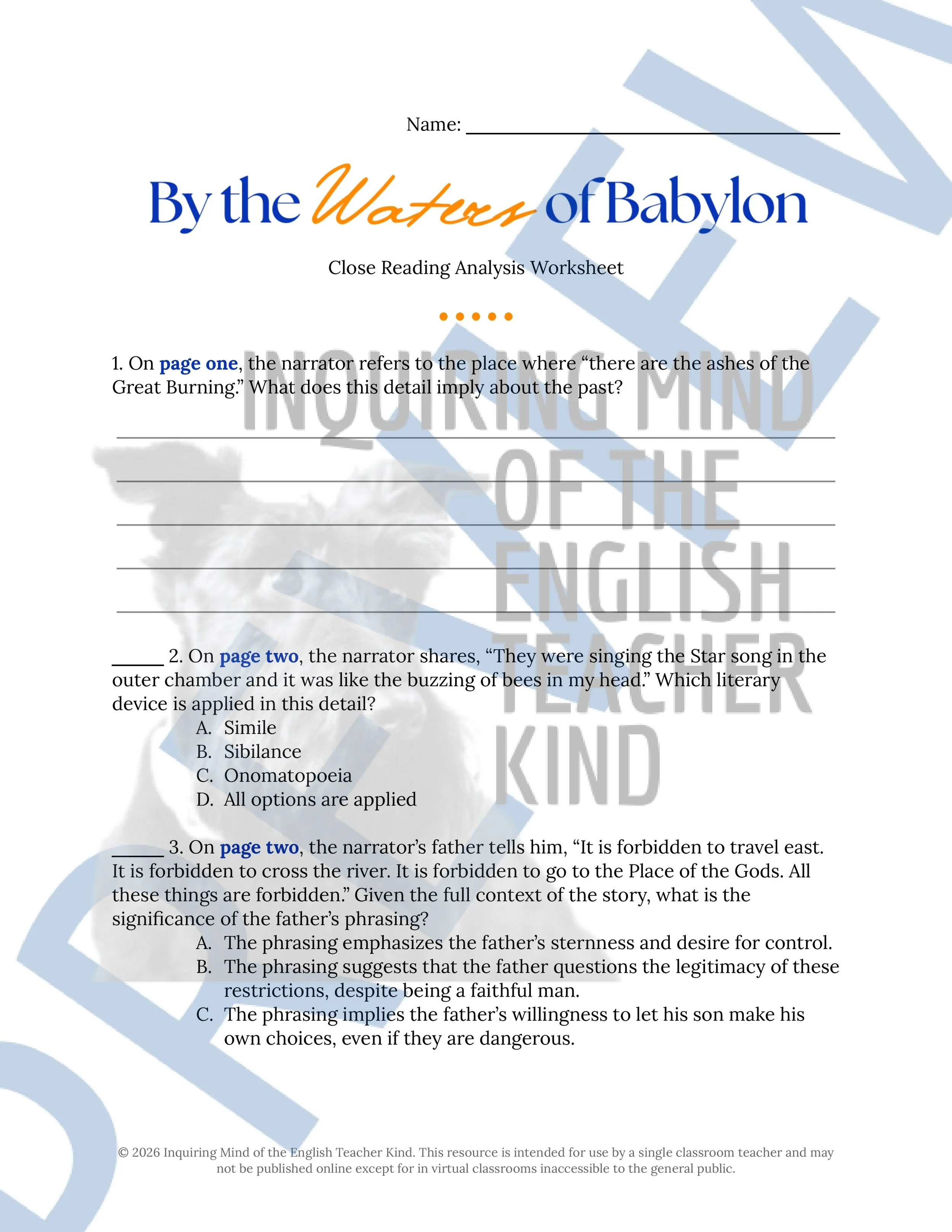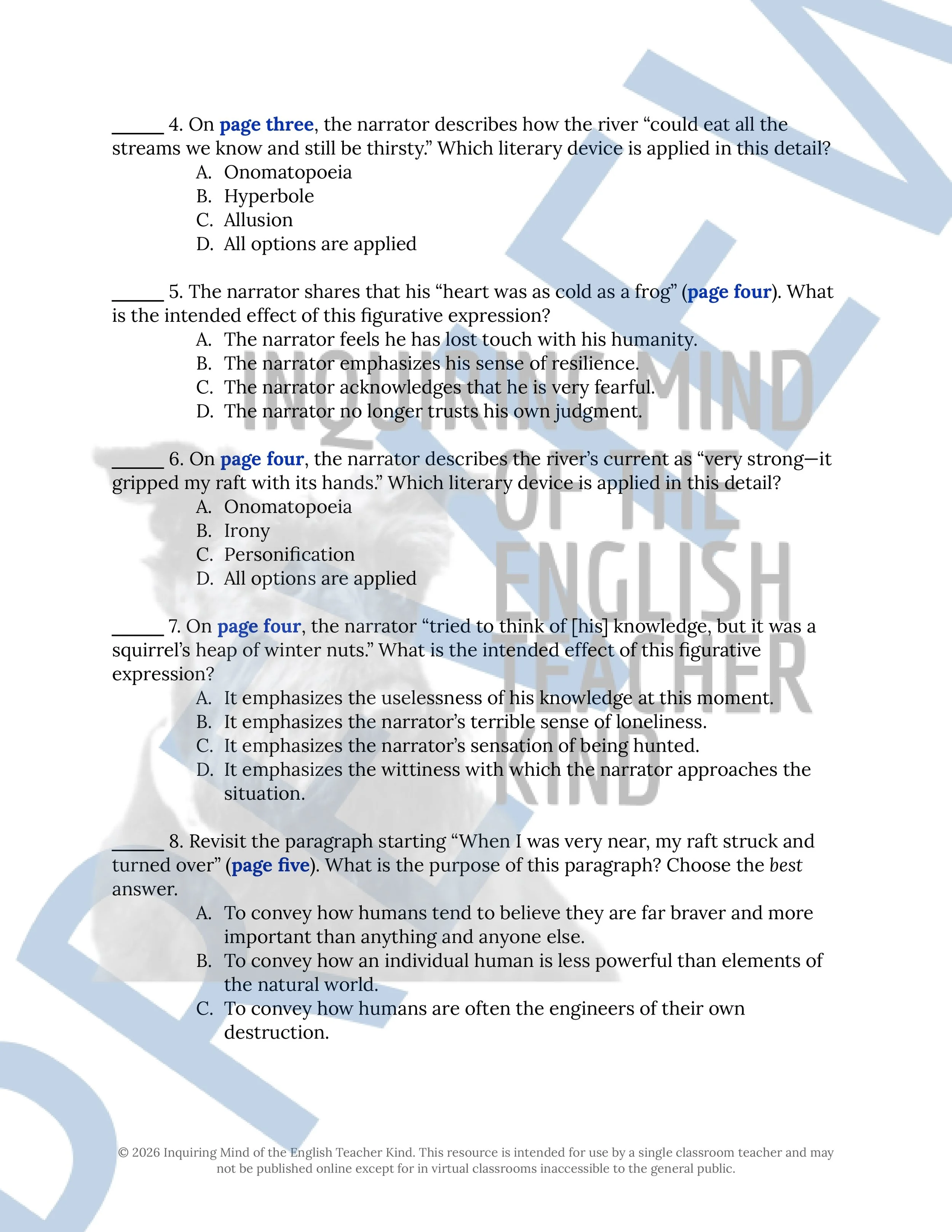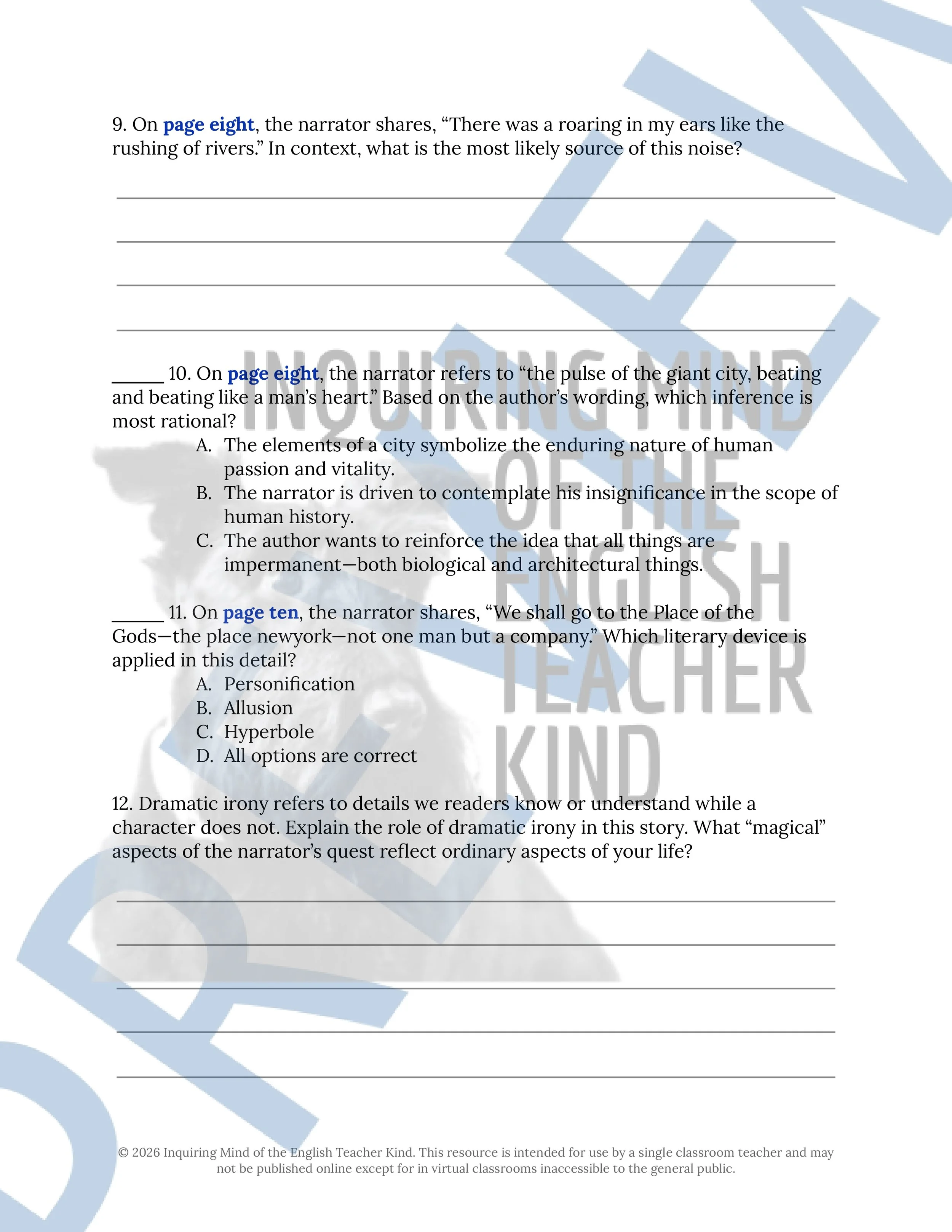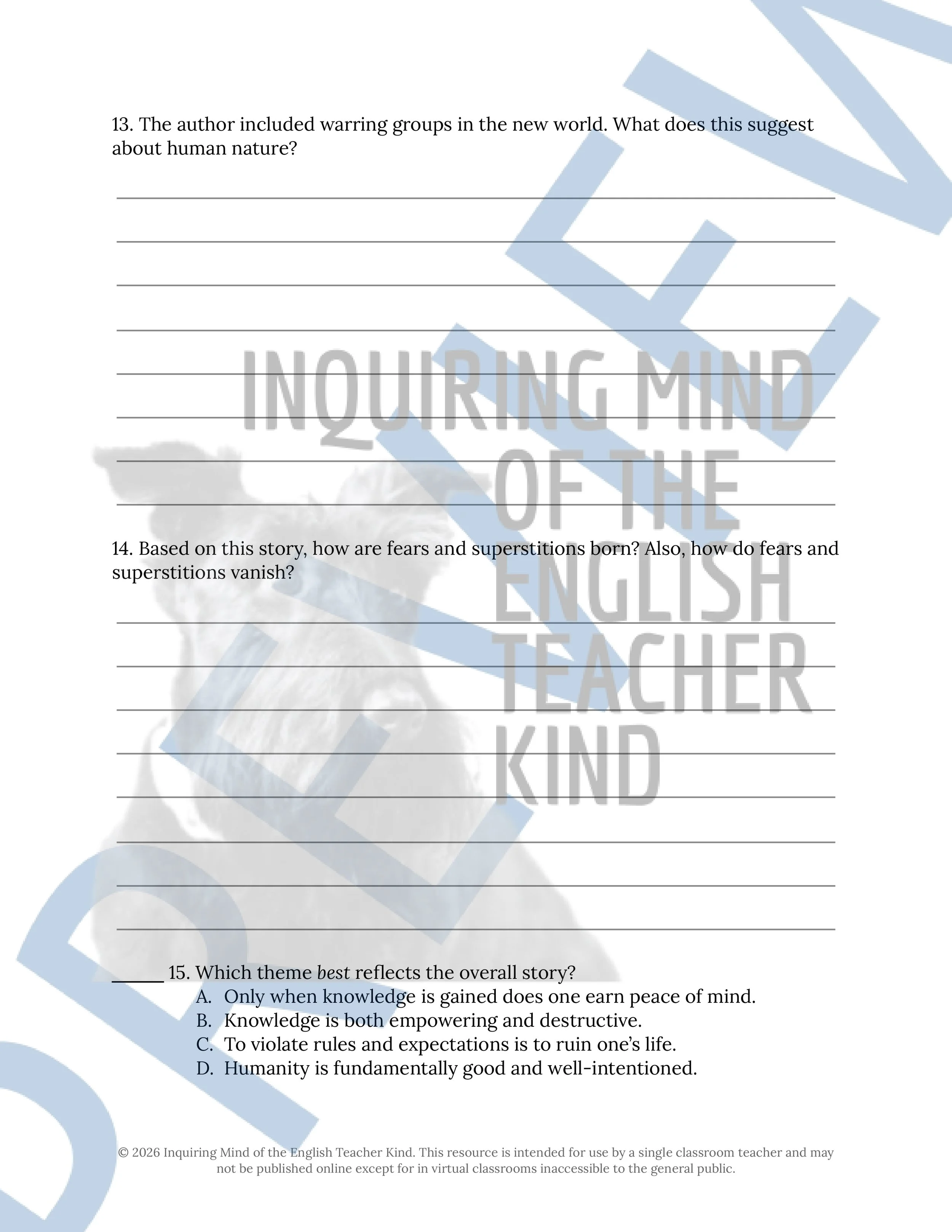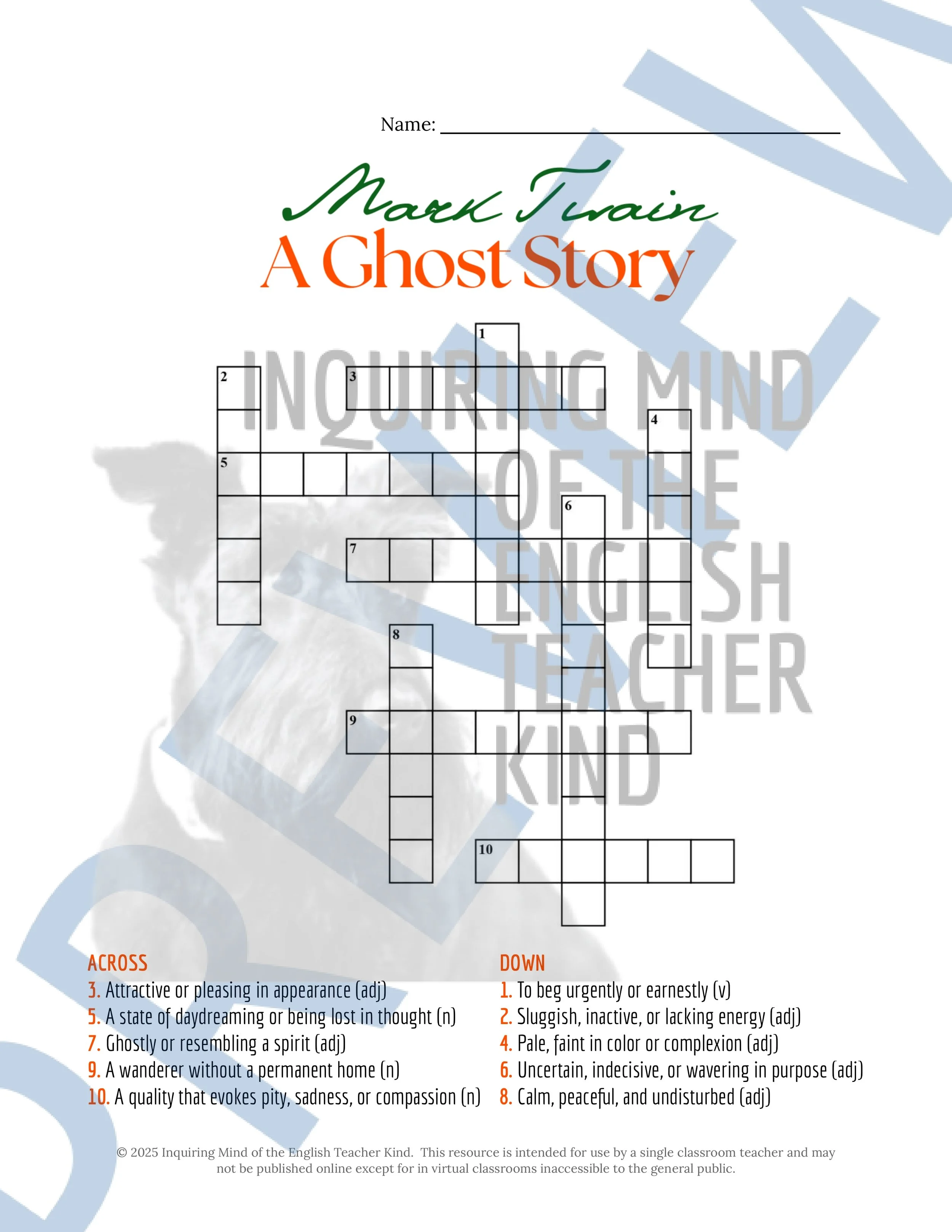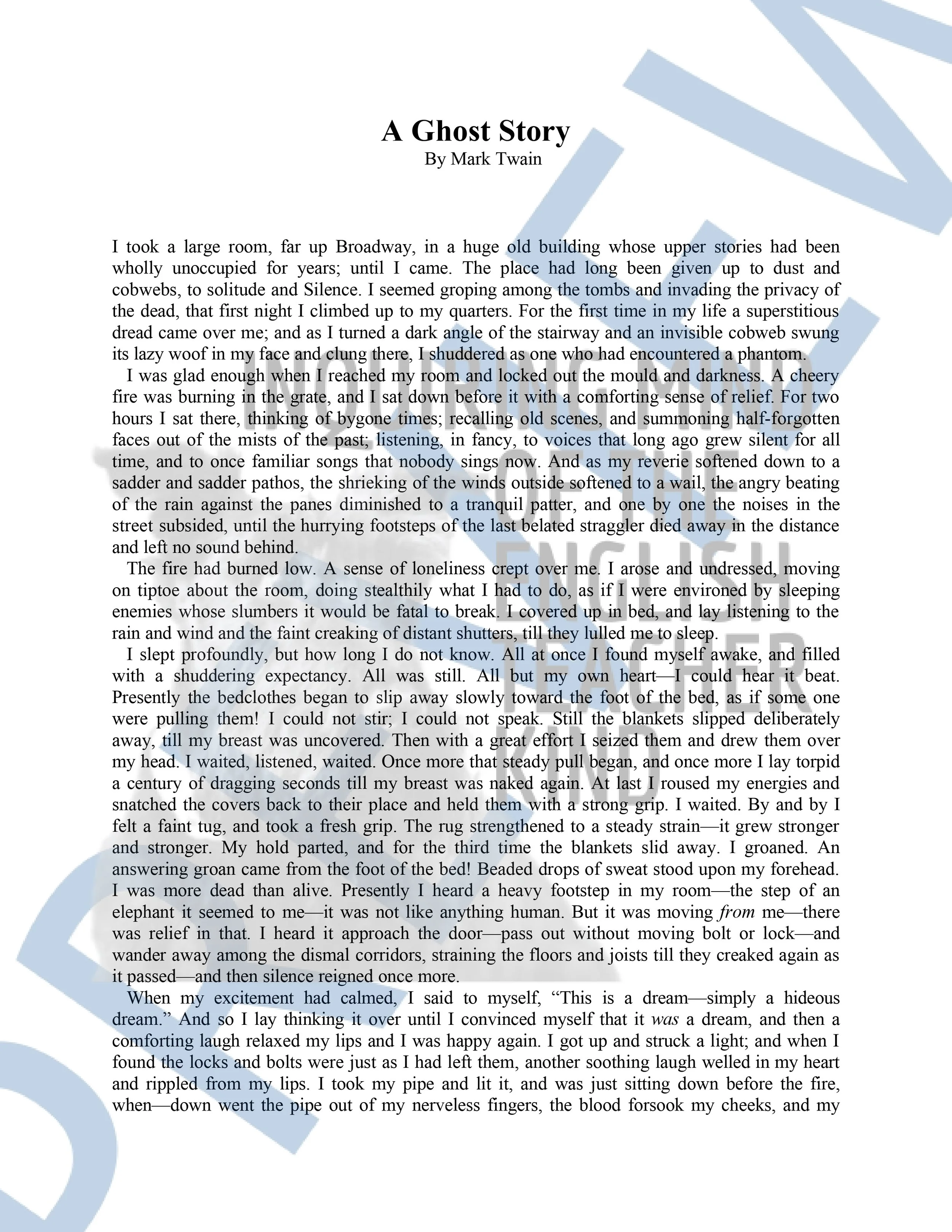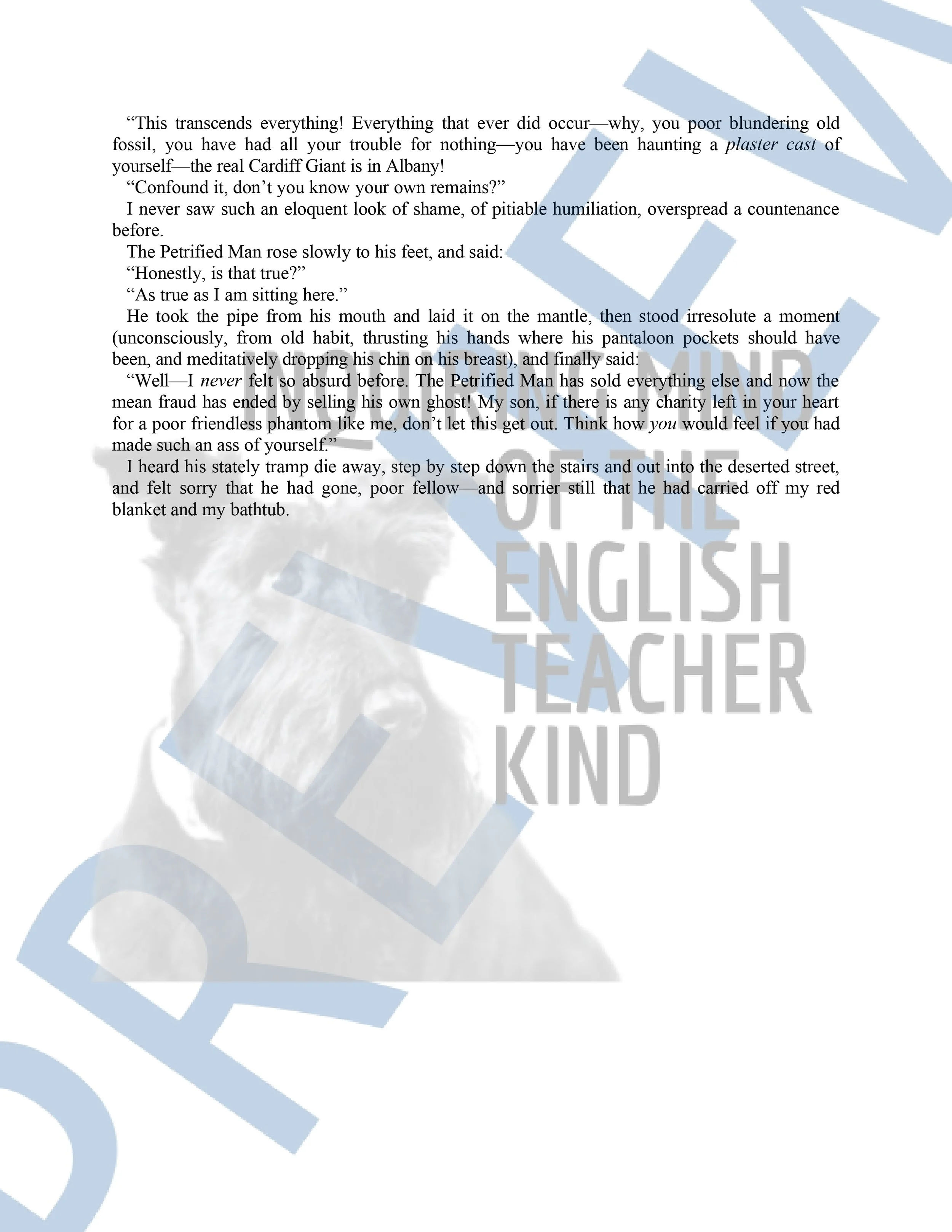 Image 1 of 14
Image 1 of 14

 Image 2 of 14
Image 2 of 14

 Image 3 of 14
Image 3 of 14

 Image 4 of 14
Image 4 of 14

 Image 5 of 14
Image 5 of 14

 Image 6 of 14
Image 6 of 14

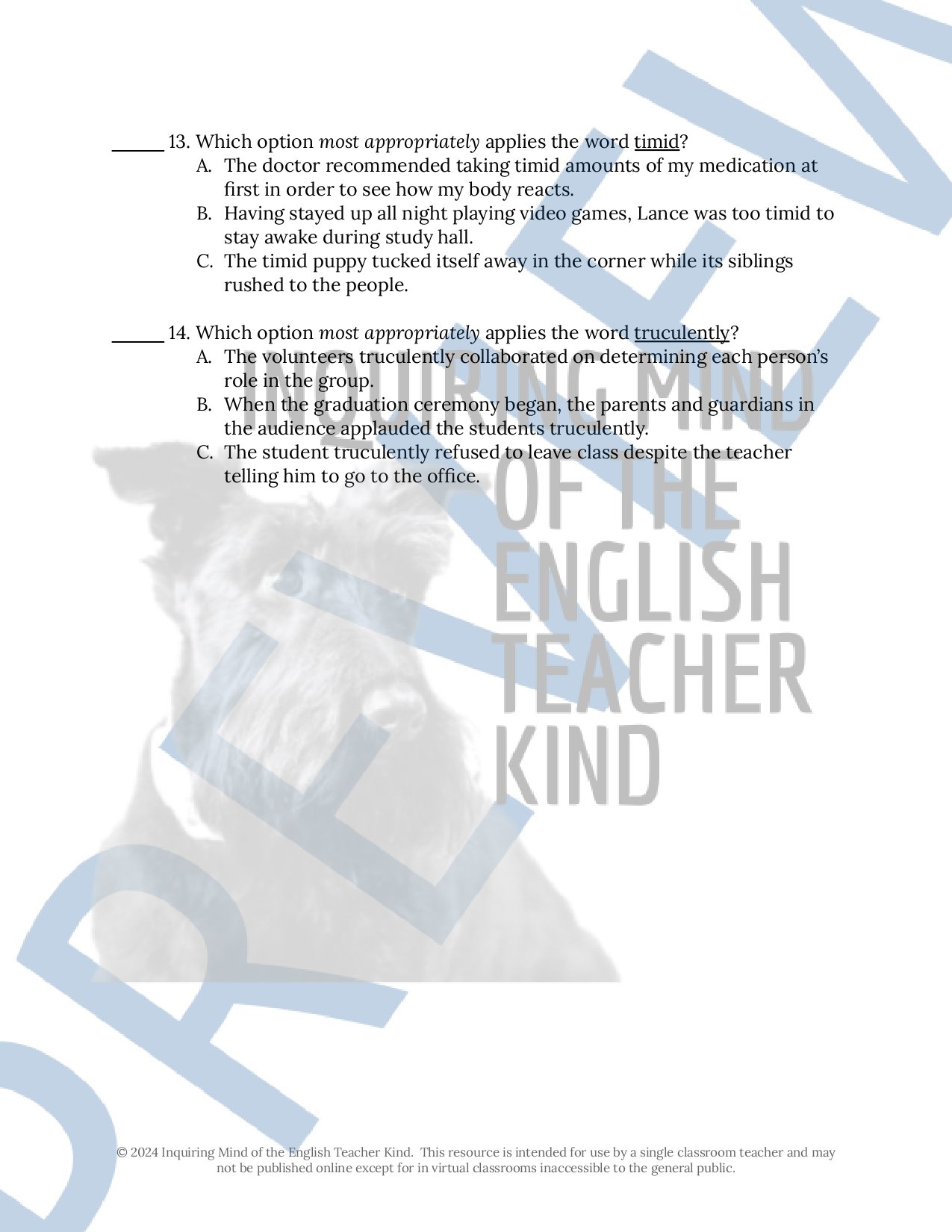 Image 7 of 14
Image 7 of 14

 Image 8 of 14
Image 8 of 14

 Image 9 of 14
Image 9 of 14

 Image 10 of 14
Image 10 of 14

 Image 11 of 14
Image 11 of 14

 Image 12 of 14
Image 12 of 14

 Image 13 of 14
Image 13 of 14

 Image 14 of 14
Image 14 of 14















"Sweat" by Zora Neale Hurston Quiz, Inference Worksheet, and Vocabulary Games Bundle
Evaluate general reading comprehension, facilitate vocabulary development, and sharpen critical thinking and literary craft analysis skills with this bundle of activities for teaching the short story "Sweat" by Zora Neale Hurston. A plot-based quiz, a close reading analysis worksheet, a vocabulary application activity, a crossword puzzle, a word search game, and answer keys are provided. Materials are delivered in editable Word Document and printable PDF formats. (Alternatively, a Google Drive bundle option is available.) By engaging with these materials, students will:
Identify what the text states explicitly and implicitly
Determine the meaning of unfamiliar and complex words
Consult reference materials in order to learn and verify word meanings
Determine the most proper application of words as they are used in sentences
Infer the intended effects of the author's word choices and narrative techniques
Describe tone in context
Explore how complex characters think, behave, interact, and develop
Support claims and inferences with sound reasoning and relevant evidence
Write about fiction with clarity, accuracy, and precision
Come to class better prepared to discuss literature
This resource may facilitate small-group discussions in which students decode language and pose/respond to questions relating to plot, broad topics, and character development. Using this resource for structured guidance, students will improve their ability to present information, conclusions, and supporting textual evidence clearly and convincingly.
Resources are available for teaching many short stories written by women:
Evaluate general reading comprehension, facilitate vocabulary development, and sharpen critical thinking and literary craft analysis skills with this bundle of activities for teaching the short story "Sweat" by Zora Neale Hurston. A plot-based quiz, a close reading analysis worksheet, a vocabulary application activity, a crossword puzzle, a word search game, and answer keys are provided. Materials are delivered in editable Word Document and printable PDF formats. (Alternatively, a Google Drive bundle option is available.) By engaging with these materials, students will:
Identify what the text states explicitly and implicitly
Determine the meaning of unfamiliar and complex words
Consult reference materials in order to learn and verify word meanings
Determine the most proper application of words as they are used in sentences
Infer the intended effects of the author's word choices and narrative techniques
Describe tone in context
Explore how complex characters think, behave, interact, and develop
Support claims and inferences with sound reasoning and relevant evidence
Write about fiction with clarity, accuracy, and precision
Come to class better prepared to discuss literature
This resource may facilitate small-group discussions in which students decode language and pose/respond to questions relating to plot, broad topics, and character development. Using this resource for structured guidance, students will improve their ability to present information, conclusions, and supporting textual evidence clearly and convincingly.
Resources are available for teaching many short stories written by women:


Preview this resource:
Evaluate general reading comprehension, facilitate vocabulary development, and sharpen critical thinking and literary craft analysis skills with this bundle of activities for teaching the short story "Sweat" by Zora Neale Hurston. A plot-based quiz, a close reading analysis worksheet, a vocabulary application activity, a crossword puzzle, a word search game, and answer keys are provided.




